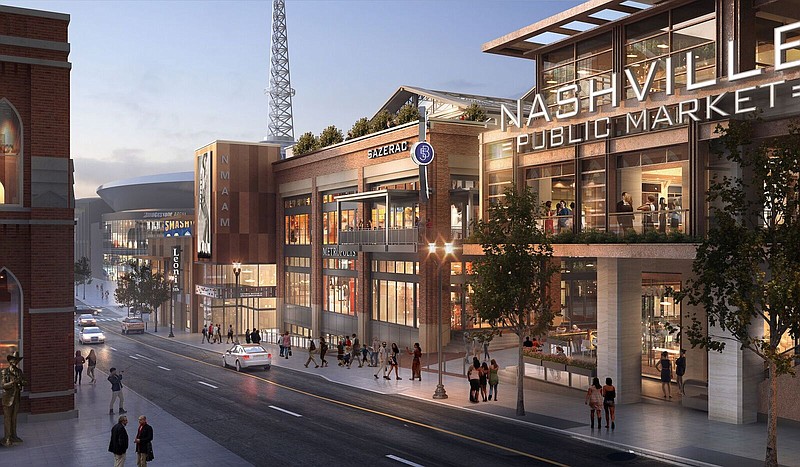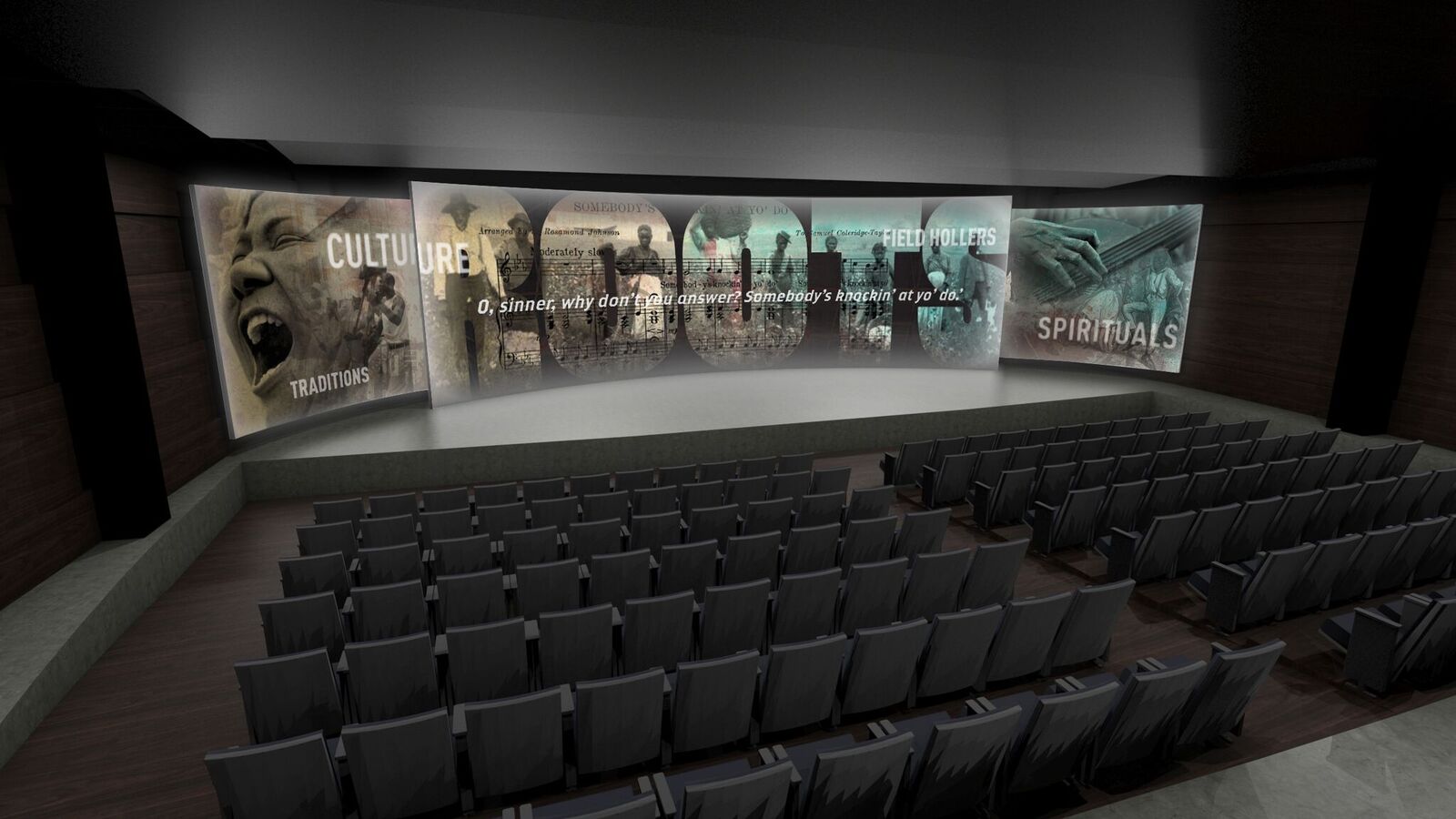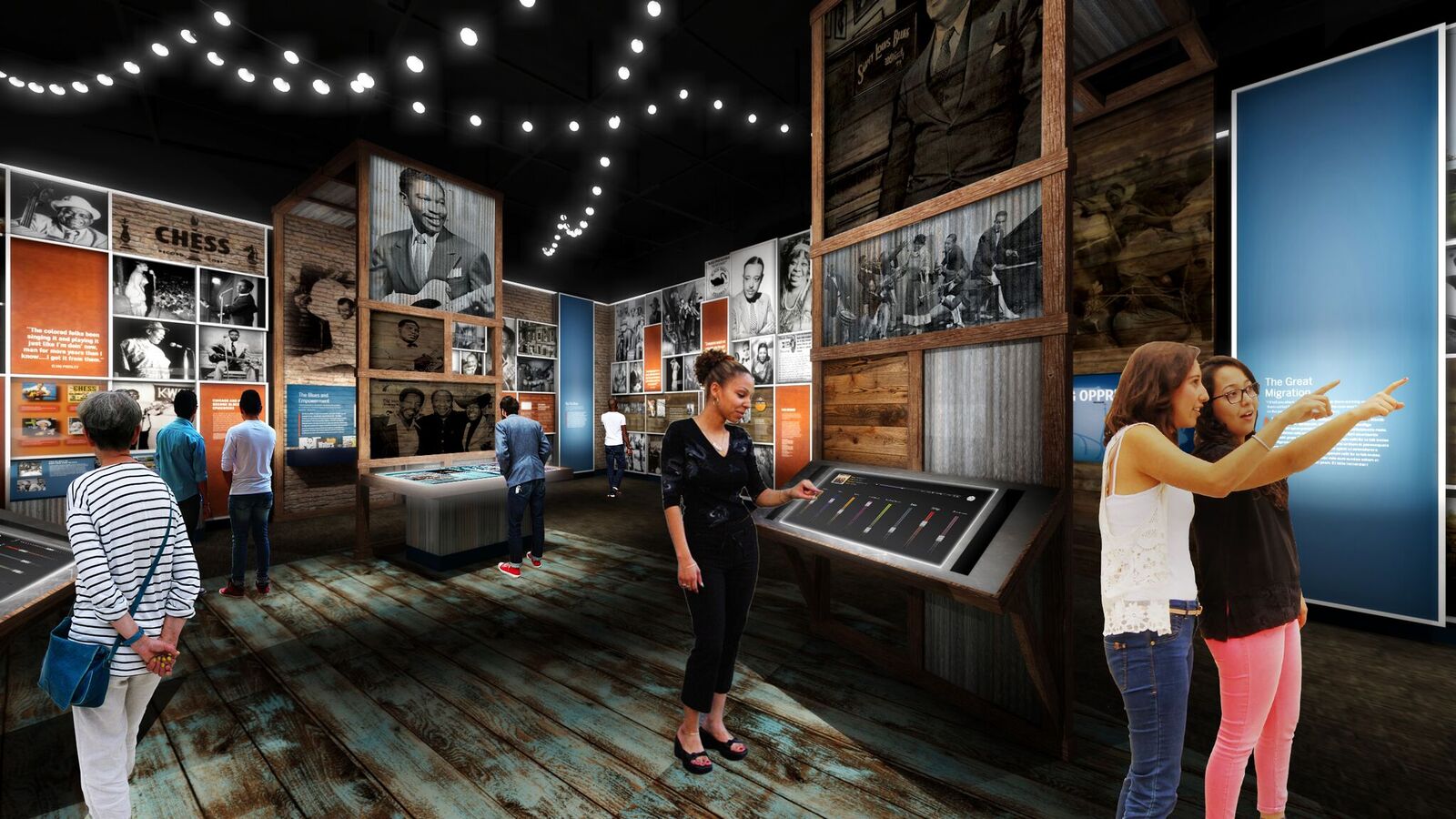Throughout this country's history, African-Americans have done much to create, influence and contribute to the musical culture in America, and the National Museum of African American Music plans to celebrate that fact.
The museum, set to open in 2019, is a $48 million, 56,000-square-foot facility located on six acres on Church Street in downtown Nashville. Nine galleries with names like "Crossroads," "Wade in the Water," "One Nation Under a Groove" and "A Love Supreme" will focus on 50 musical genres ranging from spirituals to jazz to blues to R&B to hip-hop.
"It will focus on the connectivity between all of those," says CEO and President Henry Beecher Hicks III.
Using interactive, experiential and high-tech displays, the galleries will walk visitors though a timeline that will showcase the story of how African-American culture has impacted this country through music, according to Hicks.
Hicks says the idea was first hatched nearly two decades ago, but the original concept was to focus on African-American culture in general. In 2011, the idea shifted toward creating a national museum focusing on music specifically, and the name was changed to reflect that.
"We changed it to the National Museum of African American Music," he says. "National because we want tourism. We want to attract people to Nashville - and to focus on the music piece. That is the city's brand.
He points out that other museums focus on an artist, a genre or a label, while this will take a broader approach. It blends history and the music, he says.
"This is the story of American music. I like to say we cover everything from slave music to hip-hop."
Hicks says the museum has reached out to scholars in each genre for help in choosing who and what to focus on. Each gallery will feature a timeline, and each will be connected by how the music impacted the courses of culture and history at the time. Records sales will not be as important in determining which artists or which songs are featured as much as their place in history, Hicks says.
"Who were the folks that you absolutely cannot ignore from a scholarly point of view, not necessarily from a popular music standpoint," he explains.
The "One Nation Under a Groove" exhibit is a good example of the broader, historical approach the museum will take, Hicks says.
"We want people to recognize how connected we all are. Music and an artist do not emerge out of a vacuum. They were influenced by their environment, their history and what is going on around them. We want to set all of that in context."
He says the museum wants to wrestle with the question of whether "the music made the history or the history made the museum."
He says it is important, for example, to understand the social, political, cultural and economic issues that were taking place when a label like Motown was formed, or when Joe Jackson began teaching his five sons to sing and perform.
"We want to make sure and set it in that historical context so that you understand that Stevie Wonder or Marvin Gaye or the Jackson Five were great, they were and are, but there was more to it."
He also says that every inch of the spaces will be utilized thanks to advances in technology.
"This is not your granddad's museum," he says. "We are going to utilize the floors, the ceilings, the walls, everything to tell the stories."
Patrons can tailor their visit, choosing to focus on one genre, or they can try to take it all in, Hicks says. Some of the exhibitions will change over time as well.
"We plan to have a 10-year plan in place before we open with those changes," he says.
Contact Barry Courter at bcourter@timesfreepress.com or 423-757-6354.


